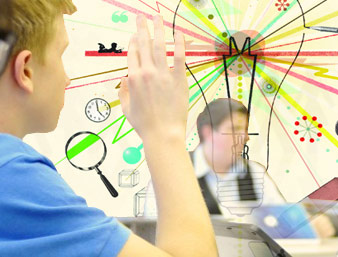
Nadezhda Popova's "School of Life"
Boguslavsky, Mikhail V.
[about]
Nadezhda Ivanovna Popova (1877-1964) can certainly be called one of the best Russian educators of the past though she was hardly considered prominent in official circles. It happened so that in my previous papers prepared for this journal, I tried to cover more famous thinkers and educational practitioners. Finally, time has come to talk about one of the few Russian teachers-pioneers who made a difference in the field of Russian education.
Popova was not under arrest in the 1930s, and one can say that her life was relatively good in comparison with those (from 1920s-30s) who faced the tragic fate of spending their days in Soviet GULAGs. But let us try not to jump to conclusions – Popova’s life was never a bed of roses and she had to drink its cup to the bitter end.
Popova realized her calling relatively early, and at the age of 16, she started working as a teacher in a Moscow municipal elementary school. By this time she had already graduated from the famous Mariinsky female gymnasium, mastered three foreign languages, and received a teacher’s certificate. Some years later she entered and successfully graduated from the History Department of the Moscow higher training female college. While studying there, she met with some brilliant thinkers of her time (Boguslavsky, Soloviev, 1992). By 1905, Popova became one of the leaders of the All-Russian Teachers’ Union and an organizer of its Moscow office.
Innovative approaches to teaching foreign languages in Russian lyceums and high schools in the second part of the 19th – beginning of the 20th century
Vetchinova, Marina N.
[about], Gerasenkova, Polina V.
[about]
In the past, Russian secondary schools, especially lyceums and high schools were oriented towards training students to master a foreign language, comprehend foreign culture and literature. It is a well-known fact that the Russian national elite of the 19th century often preferred communicating in French even within the exclusively Russian language environment. The present world situation makes us look back and try to comprehend a many-centuries’ experience, including the one in the sphere of teaching foreign languages. A perfect basis for it could be studying the development of the Russian society and the conceptions of culture in the second part of the 19th – beginning of the 20th century.
Since the second part of the 19th century the Russian empire was involved in the accelerated capitalism development process with a subsequent transition into an imperial phase, which to some extend, corresponds with the current situation in the Russian Federation (development of capitalism at the end of 20th century and search for Russia’s place in the contemporary global world). The second part of the 19th century became the time of a rapid industrial rise, development of science and technology, culture and education. Under the influence of science development, changes in economic relations and cultural exchanges the knowledge of a foreign language became essential as a basis for comprehension of another culture, advanced concepts and technologies. Not only the language itself was valuable but also the opportunity to approach another nation’s ideals, its cultural and scientific potential.




